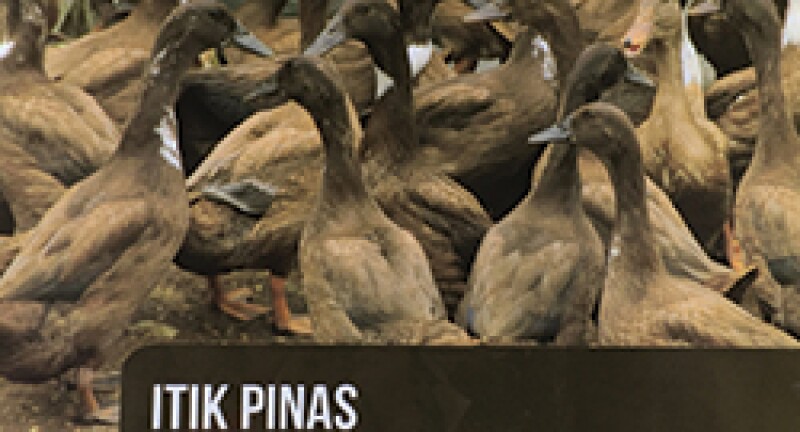
|
Photo courtesy of NSPRDC-BAI |
About 47% of the land area of the Philippines is devoted to agriculture. The agriculture sector can be divided into four groups: farming, fisheries, livestock, and forestry. The poultry industry makes up about 12% of the agriculture sector.
The duck industry, which is a major component of the agriculture sector, is made up of 70% backyard farmers, and 30% commercial farms. According to H Baldovino (2015), duck farming was once a highly profitable business but problems such as natural calamities, the presence of mongrels resulting from the interbreeding of ducks with different characteristics, lack of know-how in duck farming management and high cost of commercial feeds contributed to the decline of the duck population and egg production. In particular, the low and unpredictable performance of layer ducks and inconsistent quality of egg products resulted in recurring losses in the duck industry and affected the livelihood of about 429,700 families who were dependent on the industry (Philippine Council for Agriculture Aquatic and Natural Resources Research and Development- National Swine and Poultry Research and Development Center (PCAARRD-NSPRDC, 2017).
This led to a project entitled Development of Sustainable Breeder Philippine Mallard Duck (PMD) Production System, which started in 2012 and is ongoing. It also led to funding support from the PCAARRD-Department of Science and Technology (DOST) and Bureau of Animal Industry (BAI). Led by Dr Rene Santiago of the NSPRDC-BAI and in partnership with private entrepreneurs and duck farmers, a superior breed of native duck called Itik Pinas (Philippine duck) was developed and R&D on this genetically improved duck continues. Itik Pinas produces more eggs – up to 65 per duck each year compared with common mongrel ducks, and egg size and weight is more consistent. Studies show that 80% of the duck egg production is for balut and the rest for a component of bakery products, salted eggs, and century eggs. Balut, a 16-21 days old fertilised duck egg, is a popular street food in the Philippines which is delicious, but considered controversial or revolting by some people.
The Itik Pinas development is a trade secret and no patent has been filed for the new breed because under the IP Code, animal breeds or biological processes for the production of animals, are not patentable, and so far, no particular law has been enacted regarding this matter.

|
Editha R Hechanova |
Hechanova & Co., Inc.
Salustiana D. Ty Tower
104 Paseo de Roxas Avenue
Makati City 1229, Philippines
Tel: (63) 2 812-6561
Fax: (63) 2 888-4290










